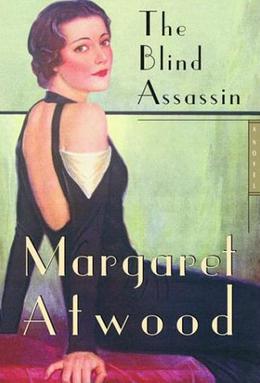 Time Magazine Top 100 Novels
Time Magazine Top 100 Novels
Book 14: The Blind Assassin by Margaret Atwood
This is a series of reflections reading through Time Magazine’s top 100 novels as selected by Lev Grossman and Richard Lacayo published since 1923 (when Time magazine was founded). For me this is an attempt to broaden my exposure to authors I may not encounter otherwise, especially as a person who was not a liberal arts major in college. Time’s list is alphabetical, so I decided to read through in a random order, and I plan to write a short reflection on each novel.
The Blind Assassin is a story within a story narrated in flashback by Iris Chase Griffen. Looking back as an old woman she remembers her time growing up with her sister Laura in household whose father shattered by World War I and the economic downturn of the 1930s and whose mother died while both girls were still young. Their father, Norval Chase, runs the Button Factory in the fictional town of Port Ticonderoga but struggles with alcoholism and depression and often isolates himself from the family to drink his pain away. Both girls were raised by Reenie, the family housekeeper, and while much of their childhood they live a relatively privileged life until the economic downturn and its impact on their father’s factory sets the conditions that cause her father to allow the wealthy Richard Griffen to propose to Iris at only eighteen to provide for his daughters. Iris’ marriage into the family of the politically ambitious Richard and his dominating sister Winifred leaves her feeling powerless, manipulated and controlled. Her husband’s version of love is abusive and Iris suspects he has several affairs during their marriage. Richard and Winifred also control the life of her sister Laura after the death of her father while Iris is on her honeymoon with Richard. The control of Laura’s life leads to her confinement in a mental health asylum and eventually her choice to commit suicide in a vehicular accident. Yet, Iris maintains her own secret life, an affair with Alex Thomas who tells her science fiction stories but who is also on the run for his activities with Communist groups in Canada in the 1930s. The story moves between the reflections and life of an old woman, remembrances of the affair and the narration of the story of the blind assassin, and a narration of the life of Iris to be handed on to her granddaughter who she is unable to see or visit due to the manipulation of the relationship between her daughter and her by Winifred.
The ending of this story is clever and the overall story is well written, but it takes a long time to develop. There is something in the voice of the old Iris which a bit haughty and detached in her view of the world around her and I had to work to get through the first two thirds of the book. Iris’ character is passive for much of the book and life happens to her, it is only in the end where we see the places where she has carved out a space to reclaim some control of her life. It is a book told from the perspective of regret: regret for her own feelings of powerlessness, regret for the damage she was unable to shield her sister, her daughter, or herself from. There is a realism in the lack of agency for a woman who is both the child of an alcoholic and who lives in a time where women had few options. I enjoyed the ending and that made the overall journey worth it. It is difficult to read the story of a woman who has no agency from the perspective of a man who is used to exercising agency and there were times I wanted to rage at the male characters in the story for the way they treated their daughter, their wife, or their lover. Yet, the views of the past are often as alien as the worlds that are described in the science fiction narrative of the blind assassin and the strange power of a book to place you in that alien place and allow you to rage at the situations of the characters in a book is part of the strange magic that authors yield in their words.
Pingback: Time Magazine Top 100 Novels | Sign of the Rose